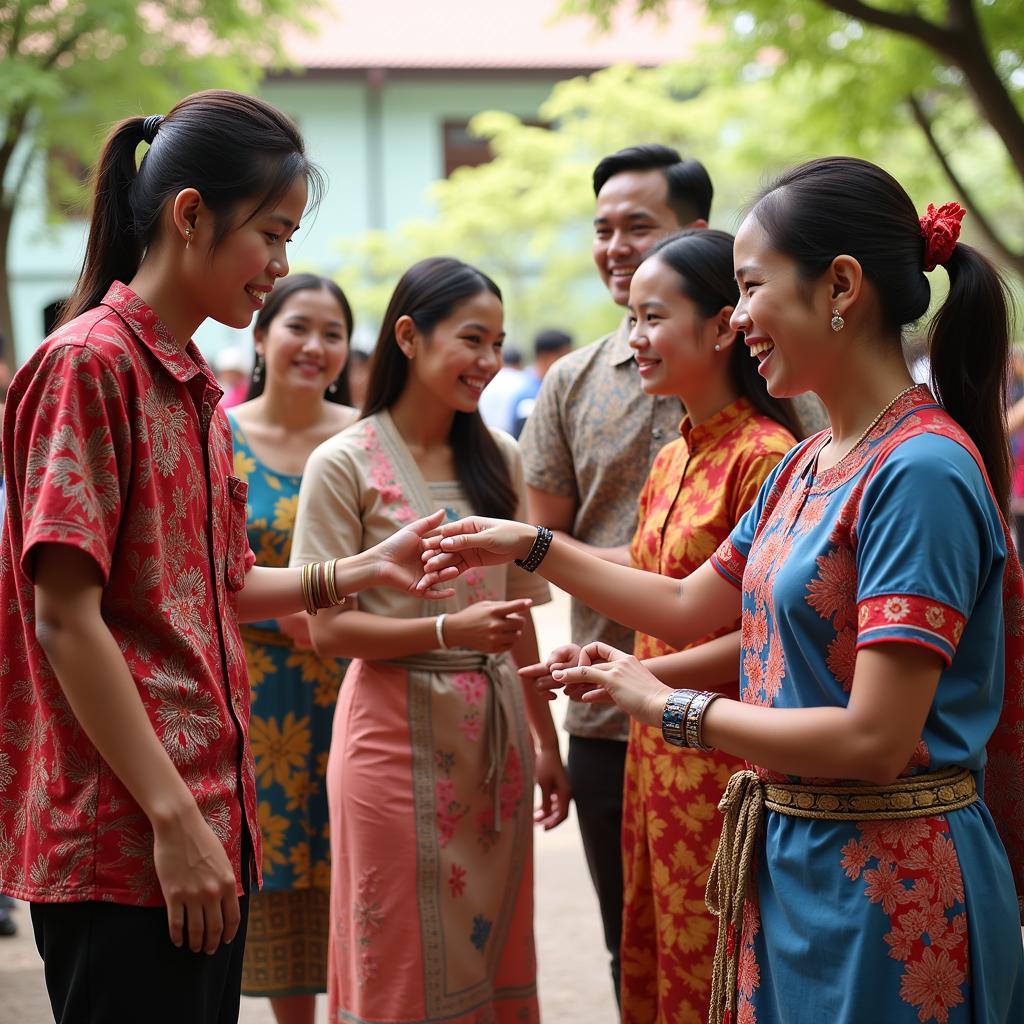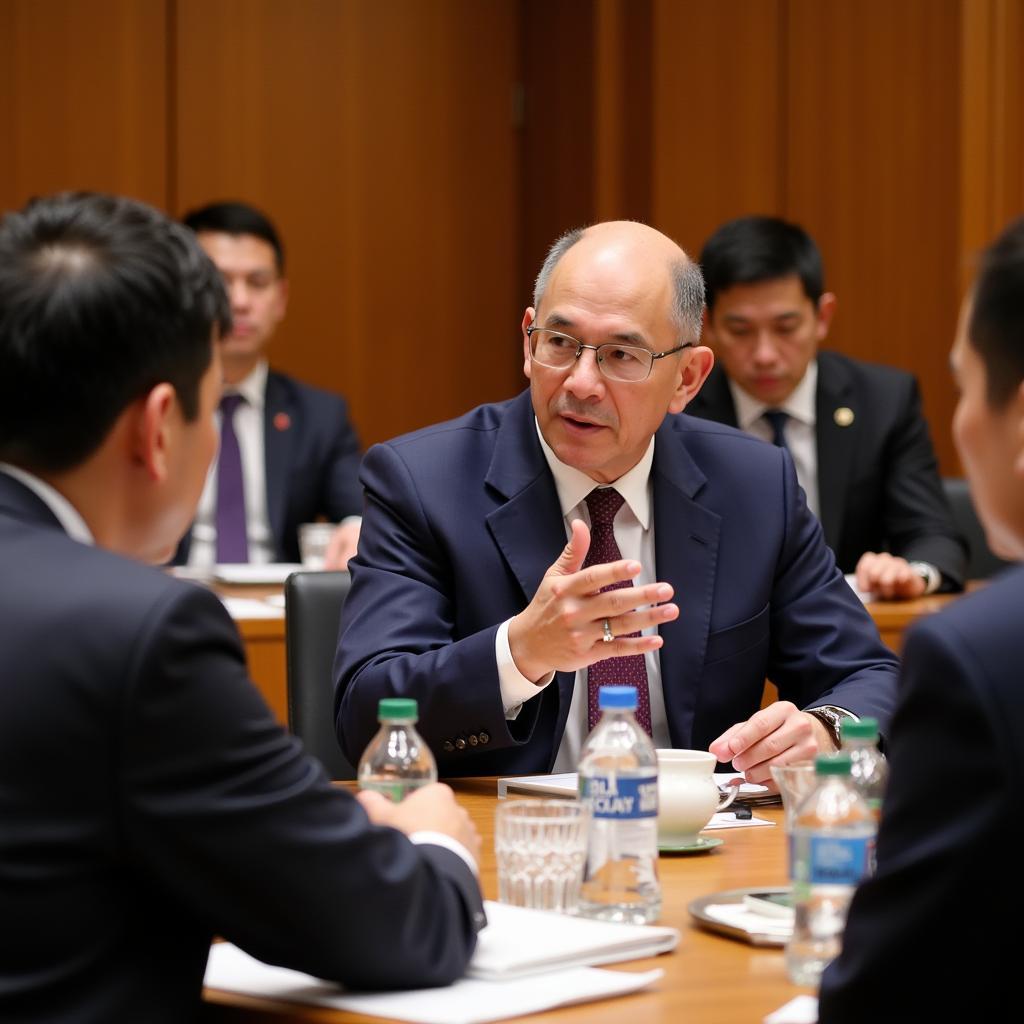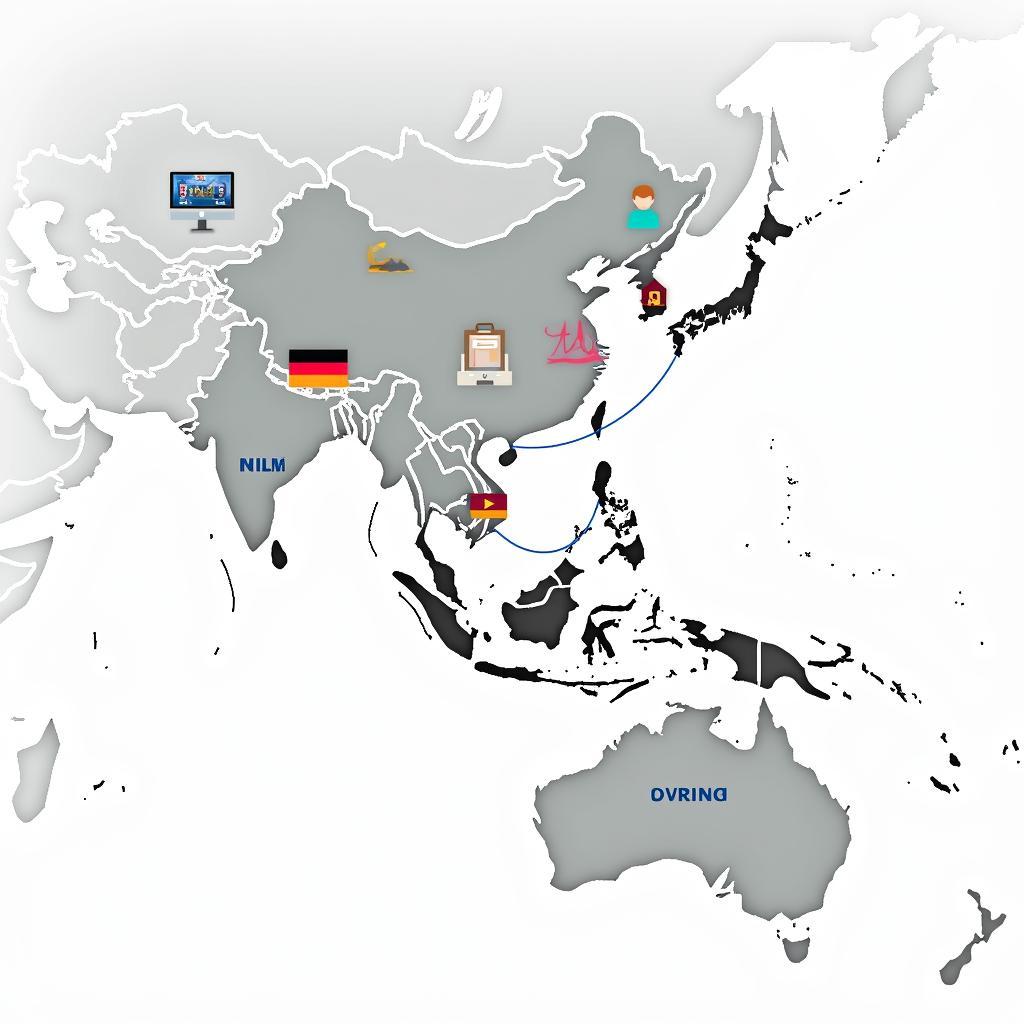The Association of Southeast Asian Nations (ASEAN) is a dynamic and diverse region with a rich cultural tapestry. While often recognized for its economic prowess, ASEAN is also deeply committed to fostering social development and cultural exchange within its member states. This commitment is embodied by the ASEAN Socio-Cultural Community (ASCC), one of the three pillars of the ASEAN Community. But what exactly is the ASCC, and what impact does it have on the lives of over 650 million people living in Southeast Asia? This comprehensive guide delves into all About Ase, exploring its objectives, key areas of cooperation, and the significant role it plays in shaping a more integrated and vibrant ASEAN.
Understanding the ASEAN Socio-Cultural Community (ASCC)
Established in 2009 alongside the ASEAN Economic Community (AEC) and the ASEAN Political-Security Community (APSC), the ASCC aims to build a community where people are at the heart of the integration process. Its core objective is to enhance regional cooperation in various socio-cultural fields, ultimately improving the quality of life for all ASEAN citizens and fostering a shared ASEAN identity.
 ASEAN Socio-Cultural Cooperation
ASEAN Socio-Cultural Cooperation
Key Areas of Cooperation within the ASCC
The ASCC focuses on eight key areas of cooperation, each designed to address crucial social and cultural issues within the region:
- Human Development: This pillar prioritizes education, health, youth development, and the role of women, aiming to equip ASEAN citizens with the skills and opportunities to reach their full potential.
- Social Welfare and Development: The ASCC works towards strengthening social protection systems, promoting gender equality, and empowering vulnerable groups, including persons with disabilities, the elderly, and migrant workers.
- Social Justice and Rights: Upholding human rights and social justice principles is fundamental to the ASCC. It actively promotes initiatives to combat human trafficking, protect migrant workers’ rights, and ensure access to justice for all.
- Environmental Sustainability: Recognizing the interconnectedness of environmental well-being and human development, the ASCC promotes sustainable development practices, biodiversity conservation, and climate change mitigation efforts.
- Disaster Management and Humanitarian Assistance: Given Southeast Asia’s vulnerability to natural disasters, the ASCC prioritizes regional cooperation in disaster preparedness, response, and recovery, aiming to build a more resilient ASEAN.
- Culture and Information: This area focuses on preserving and promoting ASEAN’s rich and diverse cultural heritage through initiatives such as cultural exchanges, arts festivals, and the development of regional media platforms.
- Sports: Recognizing the power of sports in fostering unity and camaraderie, the ASCC actively supports regional sporting events, promotes sports tourism, and encourages collaboration in sports development programs.
- Building an ASEAN Community: Underpinning all these areas is the overarching goal of fostering a sense of community and belonging amongst ASEAN citizens. This involves promoting ASEAN awareness, understanding, and appreciation among its people.
The Impact and Achievements of the ASCC
Since its inception, the ASCC has made significant strides in advancing its objectives. It has played a crucial role in:
- Improving Education and Health: The ASCC has facilitated various scholarship programs, student exchanges, and collaborative research initiatives amongst ASEAN universities. It has also spearheaded initiatives to combat infectious diseases, improve maternal and child health, and promote healthy lifestyles.
- Promoting Social Welfare: The ASCC has been instrumental in developing regional frameworks for social protection, promoting gender equality, and empowering vulnerable groups. It has also played a critical role in addressing issues like human trafficking and forced labor.
- Enhancing Environmental Sustainability: The ASCC has fostered regional cooperation in environmental protection, promoting sustainable development practices, and addressing transboundary environmental issues such as haze pollution and marine conservation.
- Strengthening Disaster Management: ASEAN has made significant progress in enhancing its disaster preparedness and response mechanisms through the ASCC. The establishment of the ASEAN Coordinating Centre for Humanitarian Assistance (AHA Centre) exemplifies this commitment to collective action in times of crisis.
- Preserving and Promoting ASEAN Culture: The ASCC has been instrumental in raising global awareness of ASEAN’s rich cultural heritage. It has facilitated numerous cultural exchanges, arts festivals, and film festivals, showcasing the diversity and vibrancy of Southeast Asian arts and culture.
The Future of the ASCC: Towards a People-Oriented, People-Centred ASEAN Community
The ASCC plays a vital role in shaping a more integrated, inclusive, and resilient ASEAN. By fostering social development, promoting cultural exchange, and prioritizing the well-being of its people, the ASCC is laying the foundation for a brighter future for Southeast Asia. As ASEAN continues to navigate an evolving global landscape, the ASCC’s focus on human development, social justice, and cultural understanding will be more critical than ever in building a truly people-oriented and people-centered ASEAN Community.
FAQs about the ASEAN Socio-Cultural Community
1. What is the main goal of the ASCC?
The ASCC aims to enhance regional cooperation in various socio-cultural fields to improve the quality of life for ASEAN citizens and foster a shared ASEAN identity.
2. How does the ASCC address environmental concerns?
The ASCC promotes sustainable development practices, biodiversity conservation, and climate change mitigation efforts, recognizing the link between environmental well-being and human development.
3. What role does the ASCC play in disaster management?
The ASCC prioritizes regional cooperation in disaster preparedness, response, and recovery, aiming to build a more resilient ASEAN. It established the AHA Centre to coordinate humanitarian assistance and disaster relief efforts.
4. How does the ASCC promote ASEAN’s cultural heritage?
The ASCC facilitates cultural exchanges, arts festivals, film festivals, and other initiatives to preserve, promote, and raise global awareness of Southeast Asian arts and culture.
5. What are some key achievements of the ASCC?
The ASCC has contributed to improvements in education, health, social welfare, environmental sustainability, and disaster management within ASEAN.
For further information about the ASEAN Socio-Cultural Community, you can explore these related articles:
Need assistance or have questions about ASE and the ASEAN Socio-Cultural Community? Contact us at Phone Number: 0369020373, Email: aseanmediadirectory@gmail.com, or visit us at Thon Ngoc Lien, Hiep Hoa, Bac Giang, Vietnam. Our dedicated customer support team is available 24/7 to assist you.

